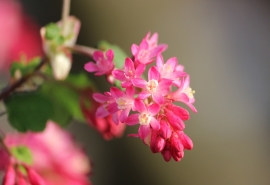
怎么能背好英语单词
我在高中时常常听到老师说单词是不用背的,只要会读就能拼。我音标都不怎么会。。想要老老实实背单词吧又觉得浪费时间。在此求救,单词应该怎么记住的1、拆分法
a、将生词拆分成小部分并且每部分都有一定的意思;
b、联系方式:将几部分组合成一个合理的场景;
注意:根据自己的背景拆分,联想不限于任何的形式;
拆分法的特点: 当形成一个很好的拆分形式,非常容易记住生词的意思。
例:peacock 孔雀 pea 豌豆 cock 公鸡
enterprise 企业 enter 表进入 prise 表扬
beam 衡量,平衡木 be - am
freshman 大学一年级学生 fresh 新鲜 man 人
income 收入 in 在什么里面 come 来
2、换顺序法
a、把字母顺序变化位置组成熟悉的单词;
b、重组后单词的意思要和原文有一定的关联;
例:awl 钻,钻研 law 法律
evil 犯罪 live 生活
funeral 葬礼 fun (有趣的) - earl - real (真正的,真实的)
reed 芦苇 deer 鹿
提示:各种方法可以结合使用。
3、换字母法
替换单词中的一个或几个字母,使其组成认识的单词。
例:roast 烤,烧烤 coast 海滩
worm 小虫子 warm 温暖的
merry 愉快的,惬意的 marry 结婚
4、加减字母法
a、加或减字母组成认识的单词;
b、重组的单词意思与生词有联系;
例:coast 海滩 coat 衣服,外套
launch 发射 lunch 午饭
pace 步骤,脚步 peace 和平
总结 以上四种方法的核心思想 将生词通过各种方式联系到学过的熟悉单词
5、谐音法
外来词
例:motor摩托车 model模特 clone 克隆 Disney 迪斯尼
heroin 海洛因 shopping 购物,血拼 pest 昆虫,小虫子
envelop 信封
6、构词法
根据前后缀的意思,猜出单词的含义
词根:词头和词尾
词头 anti 反,相反的,反对的
anti-American 反美的 antifreeze 防冻剂
ex 在什么以前 ex-president 前总统 ex-girl friend 前女友
bi 双 ,两个 bilingual 双语的 biweekly 每两周一次
tele 遥远 telephone 电话 telescope 望远镜
telegraph 电报
词尾 icide 杀害 suicide 自杀 pesticide 杀虫剂
搜趣网 ism 表示什么主义 socialism 社会主义
cs 表示学科 physics 物理学 politics 政治学
7、拟态法
例:loom 织布机
拟态法的特点:
1)优点:如果可以找到联系,可以很快记住单词;
2)缺点:适用范围小;
背单词的技巧之二:不断的重复
背诵单词流程
1、读单词,读七遍
2、琢磨记忆单词的方法
3、按照步骤2的方法,默记七遍
4、用所记的生词造句
记忆单词的周期以及时间安排
以七天作为一个周期
第一天:第一次记单词把时间安排到晚上;浏览200个左右;
第二天: 1)刚睡醒时,再看一遍昨晚浏览的单词;
2)午饭前,看早上浏览的单词;
3)睡觉前,看200个新单词;
第三天: 1)刚睡醒时,再看一遍昨晚浏览的单词;
2)午饭前,看早上浏览的单词;
3)睡觉前,浏览一二天看的400个单词;
第四天、第五天、第六天重复前三天的过程,记忆了400个新单词;
第七天:重复复习前六天学过的800个单词。
第二周的内容和第一周一样,以此类推,推四周;
第29、30天,上午浏览所有看过的单词;下午和晚上重点记忆不认识的单词。
a、将生词拆分成小部分并且每部分都有一定的意思;
b、联系方式:将几部分组合成一个合理的场景;
注意:根据自己的背景拆分,联想不限于任何的形式;
拆分法的特点: 当形成一个很好的拆分形式,非常容易记住生词的意思。
例:peacock 孔雀 pea 豌豆 cock 公鸡
enterprise 企业 enter 表进入 prise 表扬
beam 衡量,平衡木 be - am
freshman 大学一年级学生 fresh 新鲜 man 人
income 收入 in 在什么里面 come 来
2、换顺序法
a、把字母顺序变化位置组成熟悉的单词;
b、重组后单词的意思要和原文有一定的关联;
例:awl 钻,钻研 law 法律
evil 犯罪 live 生活
funeral 葬礼 fun (有趣的) - earl - real (真正的,真实的)
reed 芦苇 deer 鹿
提示:各种方法可以结合使用。
3、换字母法
替换单词中的一个或几个字母,使其组成认识的单词。
例:roast 烤,烧烤 coast 海滩
worm 小虫子 warm 温暖的
merry 愉快的,惬意的 marry 结婚
4、加减字母法
a、加或减字母组成认识的单词;
b、重组的单词意思与生词有联系;
例:coast 海滩 coat 衣服,外套
launch 发射 lunch 午饭
pace 步骤,脚步 peace 和平
总结 以上四种方法的核心思想 将生词通过各种方式联系到学过的熟悉单词
5、谐音法
外来词
例:motor摩托车 model模特 clone 克隆 Disney 迪斯尼
heroin 海洛因 shopping 购物,血拼 pest 昆虫,小虫子
envelop 信封
6、构词法
根据前后缀的意思,猜出单词的含义
词根:词头和词尾
词头 anti 反,相反的,反对的
anti-American 反美的 antifreeze 防冻剂
ex 在什么以前 ex-president 前总统 ex-girl friend 前女友
bi 双 ,两个 bilingual 双语的 biweekly 每两周一次
tele 遥远 telephone 电话 telescope 望远镜
telegraph 电报
词尾 icide 杀害 suicide 自杀 pesticide 杀虫剂
搜趣网 ism 表示什么主义 socialism 社会主义
cs 表示学科 physics 物理学 politics 政治学
7、拟态法
例:loom 织布机
拟态法的特点:
1)优点:如果可以找到联系,可以很快记住单词;
2)缺点:适用范围小;
背单词的技巧之二:不断的重复
背诵单词流程
1、读单词,读七遍
2、琢磨记忆单词的方法
3、按照步骤2的方法,默记七遍
4、用所记的生词造句
记忆单词的周期以及时间安排
以七天作为一个周期
第一天:第一次记单词把时间安排到晚上;浏览200个左右;
第二天: 1)刚睡醒时,再看一遍昨晚浏览的单词;
2)午饭前,看早上浏览的单词;
3)睡觉前,看200个新单词;
第三天: 1)刚睡醒时,再看一遍昨晚浏览的单词;
2)午饭前,看早上浏览的单词;
3)睡觉前,浏览一二天看的400个单词;
第四天、第五天、第六天重复前三天的过程,记忆了400个新单词;
第七天:重复复习前六天学过的800个单词。
第二周的内容和第一周一样,以此类推,推四周;
第29、30天,上午浏览所有看过的单词;下午和晚上重点记忆不认识的单词。
用we should造五个
We should work hard.
We should protect the environment。
We should keep the farmer from cutting down the forests。
We should help others。
We should do homework carefully。
We should protect the environment。
We should keep the farmer from cutting down the forests。
We should help others。
We should do homework carefully。
make的用法及例句
CONSTRUCTING OR CREATING 建造或创造
(a) [Tn, Tn.pr, Dn.n, Dn.pr] ~ sth (from/(out) of sth); ~ sth (for sb) construct, create or prepare sth by combining materials or putting parts together (用材料或零件)做﹑ 制作﹑ 制造﹑ 建造或创造某物: make a car, a dress, a cake 制造汽车﹑ 做连衣裙﹑ 做蛋糕 * make bread, cement, wine 做面包﹑ 制水泥﹑ 酿葡萄酒 * make搜趣网 (ie manufacture) paper 造纸 * God made man. 上帝创造了人类. * She makes her own clothes. 她的衣服都是她自己做的. * Wine is made from grapes. 葡萄酒是用葡萄酿制的. * `What is your bracelet made of?' `It's made of gold.' ‘你的镯子是什麽材料做的?’‘是金的.’ * I made myself a cup of tea. 我自己沏了一杯茶. * She made coffee for all of us. 她给我们大家煮了咖啡. * This car wasn't made (ie is not big enough) to carry eight people. 这辆汽车不是坐八个人的. (b) [Tn.pr esp passive 尤用於被动语态] ~ sth into sth put (materials or parts) together to produce sth 将(材料或零件)做成或制成某物: Glass is made into bottles. 玻璃可制成瓶子. (c) [Tn] arrange (a bed) so that it is ready for use 铺(床): Please make your beds before breakfast. 请在早饭前把床铺好.
[Tn, Tn.pr] cause (sth) to appear by breaking, tearing, removing material or striking (藉打破﹑ 撕破﹑ 移去材料或敲击)使(某物)出现, 形成: The stone made a dent in the roof of my car. 我的汽车顶让石头砸了个坑. * The holes in the cloth were made by moths. 布上的洞是虫子蛀的.
[Tn] create (sth); establish 制定(某事物); 规定: These regulations were made to protect children. 这些规则是为保护儿童而制定的. * Who made this ridiculous rule? 这条荒唐的规则是谁定的?
[Tn] write, compose or prepare (sth) 写, 创作, 准备(某事物): make one's will 立遗嘱 * make a treaty with sb 与某人签订协议 * She has made (ie directed) several films. 她已导演了几部影片. * I'll ask my solicitor to make a deed of transfer. 我要找律师拟一份让据书.
CAUSING TO BECOME, DO OR APPEAR 使变为..., 做...或显得...
[Tn] cause (sth) 产生, 引起(某事物): make a noise, disturbance, mess 产生噪音﹑ 骚乱﹑ 混乱 * She's always making trouble (for her friends). 她总(给朋友)惹麻烦.
[Cn.a] cause (sb/sth) to be or become 使(某人[某事物])成为, 变为, 变成, 变得: The news made her happy. 这消息使她很高兴. * She made clear her objections/made it clear that she objected to the proposal. 她明确表示反对此提案. * His actions made him universally respected. 他的行为使他受到普遍尊敬. * Can you make yourself understood in English? 你能用英语把意思表达清楚吗? * The full story was never made public. 详情从未公之於众. * She couldn't make herself/her voice heard above the noise of the traffic. 来往车辆噪声很大, 她无法让别人听到她的声音.
[Cn.i] (a) force or compel (sb) to do sth 强迫, 迫使(某人)做某事物: They made me repeat/I was made to repeat the story. 他们逼我又把那事讲了一遍. * She must be made to comply with the rules. 必须强迫她遵守这些规则. * He never tidies his room and his mother never tries to make him (do it). 他从不整理自己的房间, 而他母亲也从未想逼他(整理). =>Usage at cause 用法见cause. (b) cause (sb/sth) to do sth 使(某人[某事物])做某事物: Onions make your eyes water. 洋葱能刺激眼睛流泪. * Her jokes made us all laugh. 她说的笑话把我们都逗乐了. * I couldn't make my car start this morning. 今天早晨我的汽车发动不起来了. * What makes you say that? 是什麽原因让你说出那种话来? * I rang the doorbell several times but couldn't make anyone hear. 我摁了几次门铃, 但没人应. * Nothing will make me change my mind. 无论什麽事都不能使我改变主意.
[Cn.a, Cn.n, Cn.i] represent (sb/sth) as being or doing sth 使(某人[某事物])表现出某状况: You've made my nose too big, eg in a drawing or painting. 你把我的鼻子画得太大了. * The novelist makes his her搜趣网oine commit suicide at the end of the book. 那小说作者在书的结尾让他的女主人公自杀了.
[Cn.n] elect (sb); appoint 选举(某人); 指派: make sb king, an earl, a peer, etc 拥戴某人当国王﹑封某人为伯爵﹑ 封某人为贵族 * He was made spokesmanby the committee. 委员会派他当发言人. * She made him her assistant. 她委派他作自己的助手.
[Tn.pr, Cn.n] ~ sth of sb/sth cause sb/sth to be or become sth 使某人[某事物]处於某状况或变成某事物: We'll make a footballer of him yet, ie turn him into a good footballer despite the fact that he is not a good one now. 我们还是要把他造就成优秀的足球运动员(虽然他现在还不是). * This isn't very important I don't want to make an issue of it. 这并不十分重要--我不想使其成为争论之点. * Don't make a habit of it/Don't make it a habit. 不要养成那样的习惯. * She made it her business (ie special task) to find out who was responsible. 她非要弄清是谁的责任不可.
BEING OR BECOMING SOMETHING 成为...或变为...
[Ln] be or become (sth) through development; turn out to be 演变成(某事物); 结果是: If you train hard, you'll make a good footballer. 你要刻苦训练就能成为优秀的足球运动员. * He'll never make an actor. 他决当不成演员. * She would have made an excellent teacher. 她本可以成为杰出的教师.
[Ln] serve or function as (sth); constitute 用作(某事物); 起(某事物)的作用; 组成; 构成: That will make a good ending to the book. 那就成了这本书很好的结尾. * This hall would make an excellent theatre. 这座大厅可当作极好的剧院.
[Ln] add up to (sth); equal; amount to; constitute 合计等於(某数); 总计; 构成: 5 and 7 make 12. 5加7等於12. * A hundred pence make one pound. 一百便士为一镑. * How many members make a quorum? 起码的法定人数是多少? * His thrillers make enthralling reading. 他的惊险小说引人入胜. * The play makes a splendid evening's entertainment. 这出剧是极好的晚间消遣.
[Ln] count as (sth) 算做(某事物): That makes the tenth time he's failed his driving test! 他驾驶测验不及格, 这次算第十次了!
GAINING OR WINNING 获得或赢得
[Tn] earn (sth); gain; acquire 赚得(某事物); 获得; 取得: She makes 15000 a year. 她一年挣15000英镑. * make a profit/loss 盈利[亏损] * He made a fortune on the stock market. 他在股票交易中发了财. * How much do you stand to make? 你决计要赚多少钱?
[Tn] (in cricket) score (sth) (在板球中)得(若干)分: England made 235 for 5. 英格兰队5名击球手共得235分. * Botham made a century. 博瑟姆得了一百分.
(in card games, esp bridge 用於牌戏, 尤於桥牌中) (a) [Tn] win a trick with (a particular card) 打(某张牌)赢一墩: She made her ten of hearts. 她打出红桃十赢了一墩. (b) [Tn] win (a trick) or fulfil (a contract) 赢(一墩); 完成(一定约墩数的约定). (c) [I, Tn] shuffle (the cards) 洗(牌): It's my turn to make. 该我洗牌了.
[Tn] (sl sexist 俚, 性别偏见) succeed in having sex with (a woman) 与(某女子)性交: The guy doesn't make the girl until the last chapter. 直到最後一章那个男子才和那个姑娘发生了性关系.
OTHER MEANINGS 其他意义
[no passive 不用於被动语态: Cn.a, Cn.n, Cn.t] calculate or estimate (sth) to be (sth) 计算, 估计(某事物): What time do you make it?/What do you make the time? 你说现在几点了? * How large do you make the audience? 你估计听众有多少? * I make the total (to be) about 50. 我看总数大约50英镑. * I make the distance about 70 miles. 我估计那段距离约有70英里.
[Tn no passive 不用於被动语态] (a) travel over (a distance) 走过(一段距离): We've made 100 miles today. 我们今天已走了100英里. (b) reach or maintain (a speed) 达到, 保持(某速度): Can your car make a hundred miles per hour? 你的汽车一小时能开一百英里吗? (c) manage to reach (a place) 设法到达(某处): D'you think we'll make Oxford by midday? 我们中午能到牛津吗? * The train leaves in five minutes we'll never make it, ie reach the station in time to catch it. 火车再有五分钟就开了--我们绝搜趣网对赶不上了. * I'm sorry I couldn't make your party last night. 很抱歉, 昨晚我没能参加你们的聚会. * Her new novel has made (ie sold enough copies to be in) the best-seller lists. 她的新小说已列入畅销书目了. * She'll never make (ie win a place in) the team. 她绝对进不了那个运动队. * He made (ie reached the rank of) sergeant in six months. 他六个月後就当上了中士. * The story made (ie appeared on) the front page of the national newspapers. 这件事刊登在全国各报的第一版上.
[Tn, Dn.n] put (sth) forward; propose; offer 提出(某事); 提议; 提供: Has she made you an offer (ie said how much money she would pay you) for your car? 她说过她愿出多少钱买你的汽车吗? * make a proposal 提出建议 * The employers made a new offer (ie of a rise in wages) to the wo搜趣网rk-force. 雇主向工人提出增加工资的新建议. * I made him a bid for the antique table. 我向他出了个价, 要买那张古董桌子.
[Tn] cause or ensure the success of (sth) 促成, 确保(某事): A good wine can make a meal. 有了好酒饭就香. * It was the beautiful weather that really made the holiday. 是好天气成全了假日之美.
[It] behave as if one is about to do sth 表现出要做某事物的样子: He made as if to strike her. 他做出要打她的架势. * She made to go but he told her to stay. 她好像要走, 但他叫她留下.
eat or have (a meal) 吃(饭); 进(餐): We make a good breakfast before leaving. 我们动身前好好吃顿早饭. * She made a hasty lunch. 她匆匆吃了午饭.
(Often used in a pattern with a n, in which make and the n have the same meaning as a v similar in spelling to the n 常用於与名词连用的句型中, 其中make和名词之组合与该名词相应之动词同义, 如 make a decision, 即 decide; make a guess (at sth), 即 guess (at sth); for other expressions of this kind, see entries for ns 查阅类似词组见有关名词词条)
(a) [Tn, Tn.pr, Dn.n, Dn.pr] ~ sth (from/(out) of sth); ~ sth (for sb) construct, create or prepare sth by combining materials or putting parts together (用材料或零件)做﹑ 制作﹑ 制造﹑ 建造或创造某物: make a car, a dress, a cake 制造汽车﹑ 做连衣裙﹑ 做蛋糕 * make bread, cement, wine 做面包﹑ 制水泥﹑ 酿葡萄酒 * make搜趣网 (ie manufacture) paper 造纸 * God made man. 上帝创造了人类. * She makes her own clothes. 她的衣服都是她自己做的. * Wine is made from grapes. 葡萄酒是用葡萄酿制的. * `What is your bracelet made of?' `It's made of gold.' ‘你的镯子是什麽材料做的?’‘是金的.’ * I made myself a cup of tea. 我自己沏了一杯茶. * She made coffee for all of us. 她给我们大家煮了咖啡. * This car wasn't made (ie is not big enough) to carry eight people. 这辆汽车不是坐八个人的. (b) [Tn.pr esp passive 尤用於被动语态] ~ sth into sth put (materials or parts) together to produce sth 将(材料或零件)做成或制成某物: Glass is made into bottles. 玻璃可制成瓶子. (c) [Tn] arrange (a bed) so that it is ready for use 铺(床): Please make your beds before breakfast. 请在早饭前把床铺好.
[Tn, Tn.pr] cause (sth) to appear by breaking, tearing, removing material or striking (藉打破﹑ 撕破﹑ 移去材料或敲击)使(某物)出现, 形成: The stone made a dent in the roof of my car. 我的汽车顶让石头砸了个坑. * The holes in the cloth were made by moths. 布上的洞是虫子蛀的.
[Tn] create (sth); establish 制定(某事物); 规定: These regulations were made to protect children. 这些规则是为保护儿童而制定的. * Who made this ridiculous rule? 这条荒唐的规则是谁定的?
[Tn] write, compose or prepare (sth) 写, 创作, 准备(某事物): make one's will 立遗嘱 * make a treaty with sb 与某人签订协议 * She has made (ie directed) several films. 她已导演了几部影片. * I'll ask my solicitor to make a deed of transfer. 我要找律师拟一份让据书.
CAUSING TO BECOME, DO OR APPEAR 使变为..., 做...或显得...
[Tn] cause (sth) 产生, 引起(某事物): make a noise, disturbance, mess 产生噪音﹑ 骚乱﹑ 混乱 * She's always making trouble (for her friends). 她总(给朋友)惹麻烦.
[Cn.a] cause (sb/sth) to be or become 使(某人[某事物])成为, 变为, 变成, 变得: The news made her happy. 这消息使她很高兴. * She made clear her objections/made it clear that she objected to the proposal. 她明确表示反对此提案. * His actions made him universally respected. 他的行为使他受到普遍尊敬. * Can you make yourself understood in English? 你能用英语把意思表达清楚吗? * The full story was never made public. 详情从未公之於众. * She couldn't make herself/her voice heard above the noise of the traffic. 来往车辆噪声很大, 她无法让别人听到她的声音.
[Cn.i] (a) force or compel (sb) to do sth 强迫, 迫使(某人)做某事物: They made me repeat/I was made to repeat the story. 他们逼我又把那事讲了一遍. * She must be made to comply with the rules. 必须强迫她遵守这些规则. * He never tidies his room and his mother never tries to make him (do it). 他从不整理自己的房间, 而他母亲也从未想逼他(整理). =>Usage at cause 用法见cause. (b) cause (sb/sth) to do sth 使(某人[某事物])做某事物: Onions make your eyes water. 洋葱能刺激眼睛流泪. * Her jokes made us all laugh. 她说的笑话把我们都逗乐了. * I couldn't make my car start this morning. 今天早晨我的汽车发动不起来了. * What makes you say that? 是什麽原因让你说出那种话来? * I rang the doorbell several times but couldn't make anyone hear. 我摁了几次门铃, 但没人应. * Nothing will make me change my mind. 无论什麽事都不能使我改变主意.
[Cn.a, Cn.n, Cn.i] represent (sb/sth) as being or doing sth 使(某人[某事物])表现出某状况: You've made my nose too big, eg in a drawing or painting. 你把我的鼻子画得太大了. * The novelist makes his her搜趣网oine commit suicide at the end of the book. 那小说作者在书的结尾让他的女主人公自杀了.
[Cn.n] elect (sb); appoint 选举(某人); 指派: make sb king, an earl, a peer, etc 拥戴某人当国王﹑封某人为伯爵﹑ 封某人为贵族 * He was made spokesmanby the committee. 委员会派他当发言人. * She made him her assistant. 她委派他作自己的助手.
[Tn.pr, Cn.n] ~ sth of sb/sth cause sb/sth to be or become sth 使某人[某事物]处於某状况或变成某事物: We'll make a footballer of him yet, ie turn him into a good footballer despite the fact that he is not a good one now. 我们还是要把他造就成优秀的足球运动员(虽然他现在还不是). * This isn't very important I don't want to make an issue of it. 这并不十分重要--我不想使其成为争论之点. * Don't make a habit of it/Don't make it a habit. 不要养成那样的习惯. * She made it her business (ie special task) to find out who was responsible. 她非要弄清是谁的责任不可.
BEING OR BECOMING SOMETHING 成为...或变为...
[Ln] be or become (sth) through development; turn out to be 演变成(某事物); 结果是: If you train hard, you'll make a good footballer. 你要刻苦训练就能成为优秀的足球运动员. * He'll never make an actor. 他决当不成演员. * She would have made an excellent teacher. 她本可以成为杰出的教师.
[Ln] serve or function as (sth); constitute 用作(某事物); 起(某事物)的作用; 组成; 构成: That will make a good ending to the book. 那就成了这本书很好的结尾. * This hall would make an excellent theatre. 这座大厅可当作极好的剧院.
[Ln] add up to (sth); equal; amount to; constitute 合计等於(某数); 总计; 构成: 5 and 7 make 12. 5加7等於12. * A hundred pence make one pound. 一百便士为一镑. * How many members make a quorum? 起码的法定人数是多少? * His thrillers make enthralling reading. 他的惊险小说引人入胜. * The play makes a splendid evening's entertainment. 这出剧是极好的晚间消遣.
[Ln] count as (sth) 算做(某事物): That makes the tenth time he's failed his driving test! 他驾驶测验不及格, 这次算第十次了!
GAINING OR WINNING 获得或赢得
[Tn] earn (sth); gain; acquire 赚得(某事物); 获得; 取得: She makes 15000 a year. 她一年挣15000英镑. * make a profit/loss 盈利[亏损] * He made a fortune on the stock market. 他在股票交易中发了财. * How much do you stand to make? 你决计要赚多少钱?
[Tn] (in cricket) score (sth) (在板球中)得(若干)分: England made 235 for 5. 英格兰队5名击球手共得235分. * Botham made a century. 博瑟姆得了一百分.
(in card games, esp bridge 用於牌戏, 尤於桥牌中) (a) [Tn] win a trick with (a particular card) 打(某张牌)赢一墩: She made her ten of hearts. 她打出红桃十赢了一墩. (b) [Tn] win (a trick) or fulfil (a contract) 赢(一墩); 完成(一定约墩数的约定). (c) [I, Tn] shuffle (the cards) 洗(牌): It's my turn to make. 该我洗牌了.
[Tn] (sl sexist 俚, 性别偏见) succeed in having sex with (a woman) 与(某女子)性交: The guy doesn't make the girl until the last chapter. 直到最後一章那个男子才和那个姑娘发生了性关系.
OTHER MEANINGS 其他意义
[no passive 不用於被动语态: Cn.a, Cn.n, Cn.t] calculate or estimate (sth) to be (sth) 计算, 估计(某事物): What time do you make it?/What do you make the time? 你说现在几点了? * How large do you make the audience? 你估计听众有多少? * I make the total (to be) about 50. 我看总数大约50英镑. * I make the distance about 70 miles. 我估计那段距离约有70英里.
[Tn no passive 不用於被动语态] (a) travel over (a distance) 走过(一段距离): We've made 100 miles today. 我们今天已走了100英里. (b) reach or maintain (a speed) 达到, 保持(某速度): Can your car make a hundred miles per hour? 你的汽车一小时能开一百英里吗? (c) manage to reach (a place) 设法到达(某处): D'you think we'll make Oxford by midday? 我们中午能到牛津吗? * The train leaves in five minutes we'll never make it, ie reach the station in time to catch it. 火车再有五分钟就开了--我们绝搜趣网对赶不上了. * I'm sorry I couldn't make your party last night. 很抱歉, 昨晚我没能参加你们的聚会. * Her new novel has made (ie sold enough copies to be in) the best-seller lists. 她的新小说已列入畅销书目了. * She'll never make (ie win a place in) the team. 她绝对进不了那个运动队. * He made (ie reached the rank of) sergeant in six months. 他六个月後就当上了中士. * The story made (ie appeared on) the front page of the national newspapers. 这件事刊登在全国各报的第一版上.
[Tn, Dn.n] put (sth) forward; propose; offer 提出(某事); 提议; 提供: Has she made you an offer (ie said how much money she would pay you) for your car? 她说过她愿出多少钱买你的汽车吗? * make a proposal 提出建议 * The employers made a new offer (ie of a rise in wages) to the wo搜趣网rk-force. 雇主向工人提出增加工资的新建议. * I made him a bid for the antique table. 我向他出了个价, 要买那张古董桌子.
[Tn] cause or ensure the success of (sth) 促成, 确保(某事): A good wine can make a meal. 有了好酒饭就香. * It was the beautiful weather that really made the holiday. 是好天气成全了假日之美.
[It] behave as if one is about to do sth 表现出要做某事物的样子: He made as if to strike her. 他做出要打她的架势. * She made to go but he told her to stay. 她好像要走, 但他叫她留下.
eat or have (a meal) 吃(饭); 进(餐): We make a good breakfast before leaving. 我们动身前好好吃顿早饭. * She made a hasty lunch. 她匆匆吃了午饭.
(Often used in a pattern with a n, in which make and the n have the same meaning as a v similar in spelling to the n 常用於与名词连用的句型中, 其中make和名词之组合与该名词相应之动词同义, 如 make a decision, 即 decide; make a guess (at sth), 即 guess (at sth); for other expressions of this kind, see entries for ns 查阅类似词组见有关名词词条)





